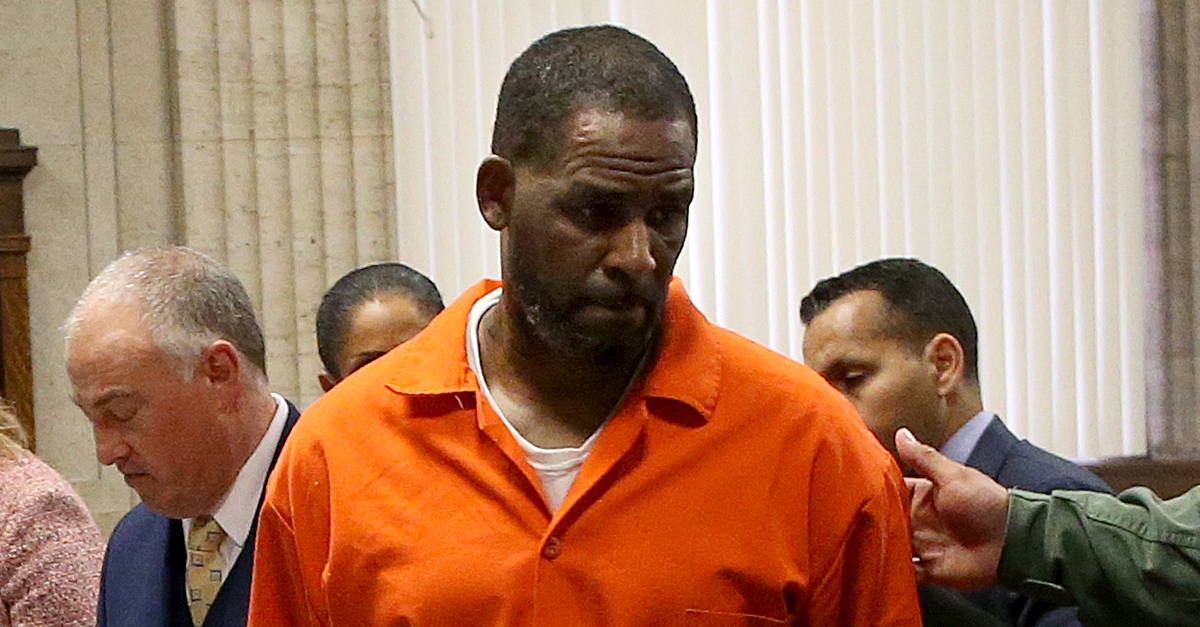
On the same morning a jury trial began in his racketeering case, embattled singer R. Kelly moved to dismiss charges in his criminal indictment accusing him of knowingly transmitting herpes to his alleged victims. His attorneys argue that the virus does not fall under the public health law’s definition of an “acute, bacterial venereal disease.”
“To allow the government to move forward with those counts would be to allow a clear mischaracterization and interpretation of the application of the statute, considering the statute clearly does not incorporate herpes,” the singer’s lawyer Thomas A. Farinella wrote in a 13-page memo supporting his motion on dismiss on Monday.
“It is unequivocal that this law was passed to prevent exposure to an acute, bacterial venereal disease such as syphilis or gonorrhea and not herpes,” he added, emphasizing the words in original.
The motion to dismiss quotes the New York State Department of Health’s history of the public health law, passed in 1943 to prevent the spread of diseases such as syphilis and gonorrhea to members of the military during World War II.
The legislation was amended three years later in 1946, more than two decades before scientists identified genital herpes as a disease, according to the motion to dismiss.
R. Kelly’s team argues that allowing the government to proceed on this theory could open the door to federal criminalization of HIV transmission.
“If the Court permits this statute to apply in this case there is no limit to the government’s power to charge people with HIV of the same crime,” the motion to dismiss states.
In a recent pre-trial motion, prosecutors previewed testimony from anonymous witnesses, such as Jane Doe #5, who is expected to testify that she was 15 years old when met R. Kelly in Florida in 2015. The singer also allegedly filmed himself having sex with her, again “thereby producing child pornography,” prosecutors say.
“As a result of the defendant’s actions, Jane Doe #5 contracted an incurable sexually transmitted disease at the age of 17,” prosecutors allege.
R. Kelly claims that some of the alleged victims were not minors and had consensual sex with him.
This argument forms the basis of the singer’s bid to dismiss certain allegations of reckless endangerment for exposing his alleged victims to the disease. His lawyers claim that the allegation particularly does not fit for relations they describe as “adult, consensual sexual intercourse.”
“Essentially, the law requires that the risk connected to a reckless endangerment charge must demonstrate, a ‘gross-deviation from the standard of conduct that a reasonable person would observe in the situation,’ and permitting this charge to stand would be tantamount to criminalizing adult, consensual, sexual intercourse,” the memo states.
Prosecutors claim that R. Kelly filmed himself having sex with his alleged minor victims, “thereby producing child pornography,” but the singer wants to dismiss those allegations, claiming that the government has not produced evidence of the footage.
“However, there is no evidence that visual depictions exist,” the memo states. “Therefore, as a matter of law and because it is impossible to find the Mr. Kelly of these allegations should be dismissed.”
The memo was filed with the commencement of jury selection on Monday. Trial is scheduled to start on Aug. 18.
Read the brief below:
(R. Kelly via Antonio Perez – Pool via Getty Images)